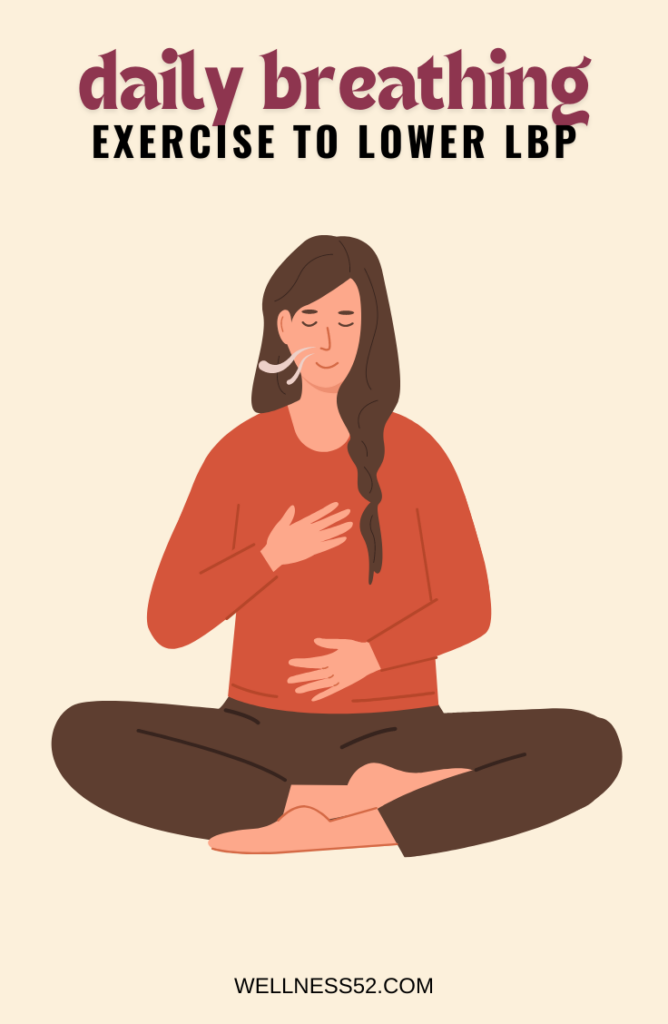
Did you know that simple breathing exercises can be a powerful tool in managing high blood pressure? Often overlooked, the act of breathing is a cornerstone of our health, yet it’s a skill that many of us take for granted.
Research suggests that strengthening the muscles involved in breathing can significantly impact our cardiovascular health. By incorporating targeted breathing exercises into your daily routine, you may experience a reduction in blood pressure and improved overall well-being.
Let’s explore how this ancient practice can revolutionize your approach to managing blood pressure.
You may also like:
- A 5-Minute Breathing Exercise May Be Better for Blood Pressure Than Meds
- 10 Foods That Will Clean Your Arteries Naturally And Protect You From Heart Attacks
Breathing Exercises to Improving Respiratory Strength

It may surprise you to know that most of our breathing muscles are skeletal muscles. Skeletal muscles include our calves, triceps, and biceps, to name a few. To train these muscles, we perform resistance training exercises.
Therefore, we can strengthen respiratory muscles through similar resistance training principles.
In order to build up our pecs and lats, we lift weights or use resistance bands. Similarly, we can resist our breath to strengthen our respiratory muscles.
PowerBreathe, and other similar devices, make training these muscles easy.
Using a Handheld Device for Increasing Breathing Muscle Strength
The patient first places the PowerBreathe in the mouth. Once positioned, it serves to provide resistance as the patient takes a deep breath in.
In a study of the device’s effectiveness, researchers found the following.
- 30 “repetitions” (breaths) per day for six weeks led to an average of 9 mmHg decrease in blood pressure.
- This is comparable to the level of decrease seen with the use of blood pressure drugs.
- The aforementioned drop in BP is correlated with more than a 30% decrease in stroke risk.
These are significant findings. In fact, this magnitude of decrease in blood pressure can take a person from a hypertensive status to normal blood pressure.
Is Your Blood Pressure Normal?
For quite some time now, “normal” blood pressure has been considered to be less than 120/80 mmHg. Anything higher than this is termed “hypertensive”. However, some groups differentiate further, classifying hypertension as follows.
- Systolic >120 mmHg, <130 mmHg, and/or diastolic >80 mmHg, <90 mmHg is considered prehypertensive.
- Systolic >130 mmHg, <140 mmHg, and/or diastolic >90 mmHg, <100 mmHg is considered hypertensive stage I.
- Systolic >140 mmHg and or diastolic >100 mmHg is considered hypertensive stage II.
Furthermore, there is no defined cutoff for what is considered “low blood pressure”. This diagnosis is primarily based on symptoms, not blood pressure measurement.
Disease Prevention Through Breath Training
Not only can breathing exercise reduce the severity of hypertension, it might also prevent it from ever occurring.
Some researchers postulate that breath training can have similar physiologic effects as aerobic exercise.
At this time, the data does not currently provide strong support for this claim. However, it stands to reason that strengthening these muscles can be a preventative step for the development of hypertension.
It should be said, however, that aerobic exercise has many other benefits. For example, walking or biking can also improve muscular endurance and strength throughout the body.
So, we don’t want to imply that breath training should replace aerobic exercise. Rather, it could be used in conjunction with this type of workout.
Breath Training for Everyone
Obviously, breath training seems like a great option for those with lung disease and hypertension.
However, this pursuit may also be helpful for:
- Athletes,
- Younger individuals,
- Older individuals,
- Virtually everyone else.
Athletes, in particular, might benefit from breath training. There is some evidence that the practice can increase cardiovascular endurance.
Regardless of age, ability level, gender, or any other defining feature a person has; it seems that breath training is a great tool!
Unlock the Power of Your Breath
Recent scientific discoveries have unveiled the incredible potential of breath training to revolutionize our health. From boosting endurance to managing conditions like high blood pressure, the simple act of breathing has emerged as a powerful tool for overall well-being.
By strengthening the muscles involved in respiration, we can experience a cascade of benefits, including improved heart health and reduced stress. So, if you’re looking for a natural and accessible way to enhance your health, it’s time to take a deep breath and explore the world of breath training.


